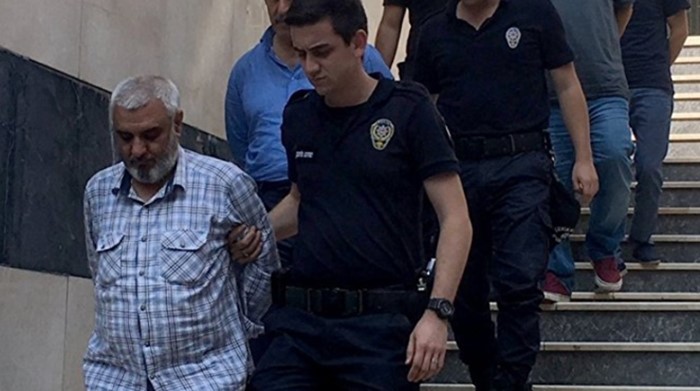Ali Bulaç, a veteran journalist and scholar of theology, described violations of his rights while incarcerated in a YouTube interview, describing 22 months behind bars following his arrest in the aftermath of Turkey’s failed July 15, 2016 coup attempt, the Stockholm Center for Freedom reported.
Bulaç, a columnist for the now-closed Zaman and Today’s Zaman dailies, was detained on July 27, 2016 over alleged links to the faith-based Gülen movement and arrested three days later on accusations of spreading propaganda on behalf of the movement.
Turkish President Recep Tayyip Erdoğan has been targeting followers of the Gülen movement, inspired by the late Muslim cleric Fethullah Gülen, since corruption investigations revealed in 2013 implicated then-Prime Minister Erdoğan, his family members and his inner circle.
Dismissing the investigations as a Gülenist coup and conspiracy against his government, Erdoğan designated the movement a terrorist organization and began targeting its members. He intensified the crackdown on the movement following an abortive putsch in 2016, which he accused Gülen of masterminding. Gülen and the movement strongly deny involvement in the coup attempt or any terrorist activity.
Authorities raided Bulaç’s home, confiscating personal items, including computers, hard drives and an extensive library of 28,000 books. He alleges that many of these materials, which included religious and academic texts, were destroyed or never returned, even after courts ordered that his property be returned.
At the time of his detention, Bulaç was 67 and dealing with severe diabetes. His blood sugar spiked to dangerous levels, but he says authorities handcuffed him to a hospital bed during his treatment before sending him back to custody despite medical warnings about life-threatening risks.
Bulaç described the initial detention conditions as unhygienic and fear-inducing, though he was later moved to a less crowded facility. He also endured an eight-month book ban, even losing access to religious texts such as Qur’anic commentaries. His repeated requests for reading materials went unanswered, leaving him without intellectual engagement for much of his time in carceration.
Securing legal representation also proved challenging. Many lawyers refused his case, fearing retribution from authorities. Some demanded he denounce figures associated with the Gülen movement. Bulaç, who identifies with Islamic intellectual traditions but not with any specific group, refused and subsequently lost his long-time attorney. Eventually, a lawyer referred by former colleagues agreed to represent him, but the delay left Bulaç without consistent counsel during critical parts of his trial.
Turkey has faced sharp criticism from international human rights organizations over its treatment of journalists and others in the years following the abortive putsch. Authorities detained scores of reporters, accusing them of supporting terrorism or opposing the government, often without substantial evidence. Many were charged under anti-terror laws or linked to groups deemed hostile to the state, prompting concerns over press freedom.
Rights groups have documented widespread mistreatment in detention centers during this period. Reports have highlighted overcrowding, poor hygiene, denial of legal counsel and inadequate access to medical care, among other abuses. In some cases, detainees were subjected to physical abuse or psychological intimidation. Journalists and other detainees often face restrictions on access to reading materials and communication with the outside world, exacerbating the psychological toll of their imprisonment.
These measures have drawn condemnation from press freedom advocates, who described the actions as an assault on free expression and a broader attempt to silence dissent in Turkey.
